Plastic sunglasses are a dominant force in the eyewear industry. The choice of materials and manufacturing techniques greatly impacts their quality, sustainability, and market positioning. But what are the key materials and processes shaping the future of plastic sunglasses?
Innovations in plastic materials, advanced manufacturing techniques, and sustainable practices are driving the next generation of sunglasses. This article explores material choices, production methods, and future trends.
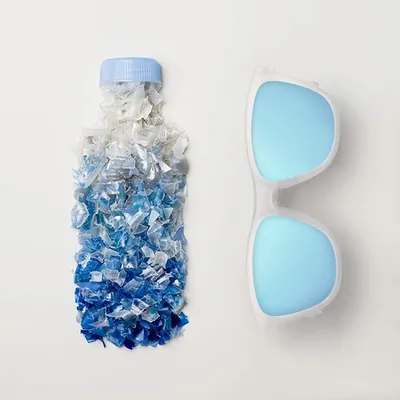
Understanding these factors helps eyewear brands make strategic decisions. Let’s examine the essential aspects of plastic sunglasses production.
What Are the Key Plastic Materials Used in Sunglasses?
The choice of material influences durability, flexibility, and aesthetics.
Acetate, nylon, and polycarbonate dominate the industry, while eco-friendly alternatives are gaining traction.
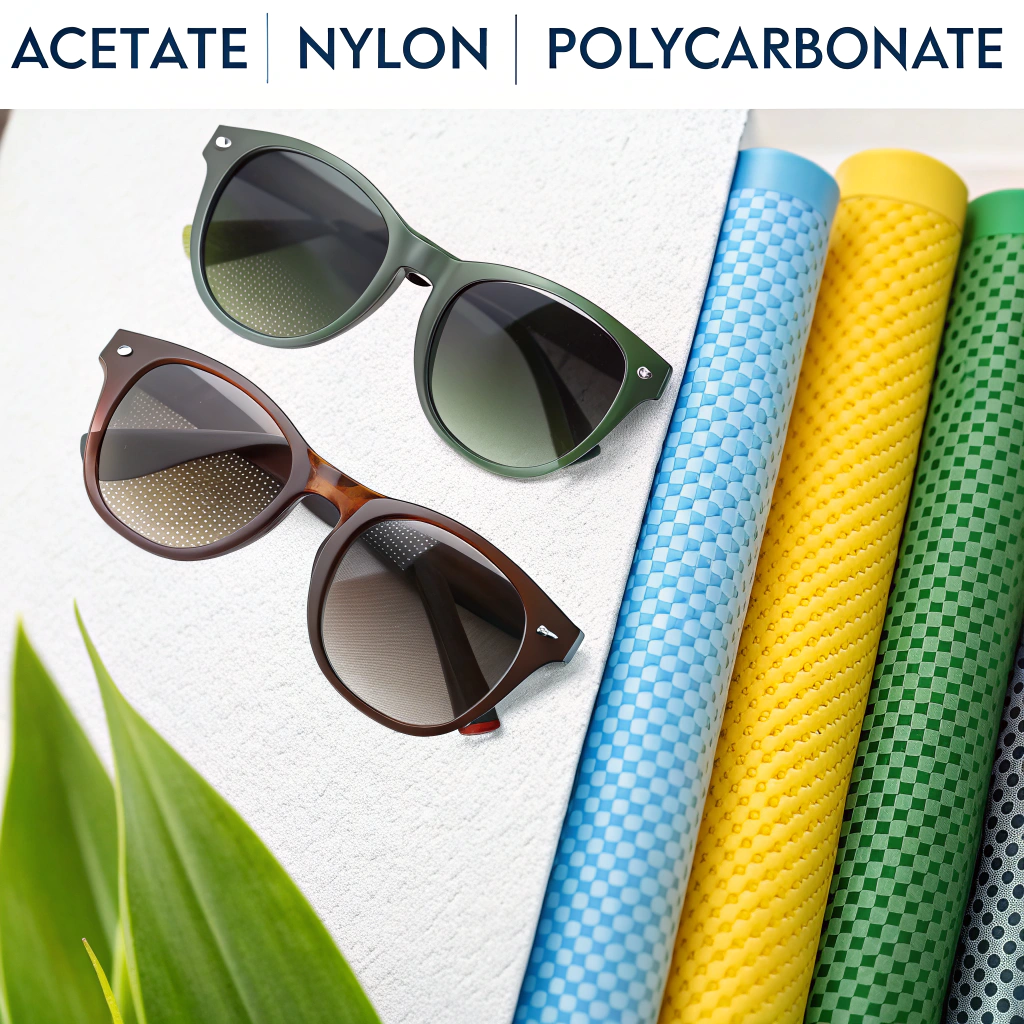
Material Comparison
| Material | Features |
|---|---|
| Acetate | Rich color options, premium feel, durable. |
| Nylon | Lightweight, impact-resistant, ideal for sports eyewear. |
| Polycarbonate | High impact resistance, lightweight, affordable. |
| Bio-based Plastics | Sustainable, biodegradable, increasing in popularity. |
| Recycled Plastics | Reduces waste, environmentally friendly alternative. |
Each material serves a specific purpose, influencing eyewear design and functionality.
How Are Plastic Sunglasses Manufactured?
The production process involves advanced technology and precise techniques.
From CAD-based design to high-precision molding and automated finishing, modern eyewear production has become highly sophisticated.
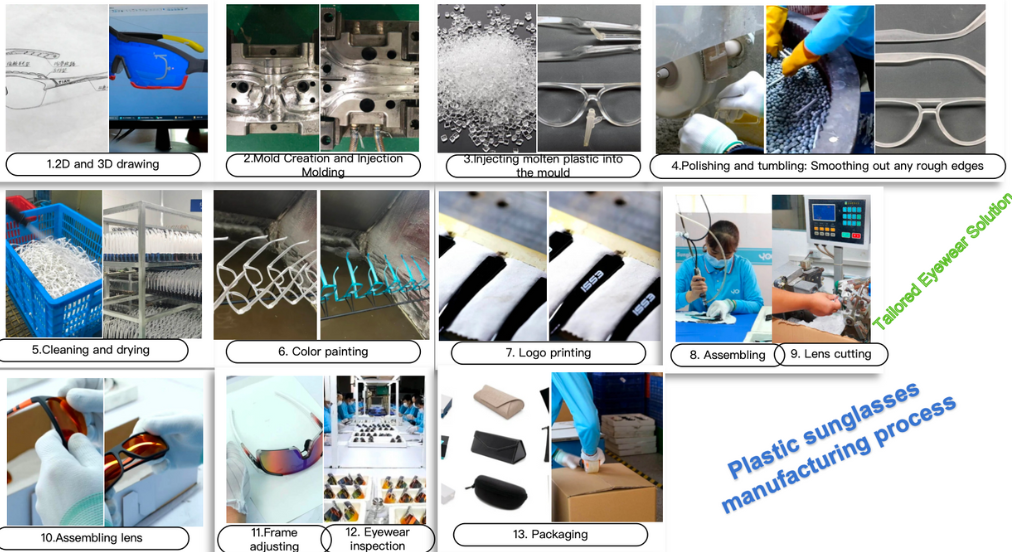
Key Manufacturing Steps
1. Design and Prototyping
- 2D and 3D CAD software for accurate modeling.
- Rapid prototyping using 3D printing for design validation.
2. Mold Creation and Injection Molding
- CNC-machined molds ensure precision and consistency.
- High-pressure injection molding optimizes material flow and frame strength.
3. Surface Finishing and Assembly
- Automated polishing and tumbling enhance smoothness.
- Advanced coating and spray-painting techniques for color variations.
- Laser and screen printing for branding and logo application.
4. Lens Cutting and Assembly
- Automated cutting machines ensure precise lens fit.
- Ultrasonic welding and snap-fit designs improve durability.
5. Quality Control and Testing
- Rigorous impact, scratch, and UV resistance tests.
- Frame adjustment for enhanced fit and comfort.
Efficiency and precision in manufacturing improve product quality and production scalability.
What Are the Latest Trends in Plastic Sunglasses Design?
Modern sunglasses combine aesthetics with ergonomic and functional design.
Ergonomic designs, fashion trends, and personalization are reshaping the industry.
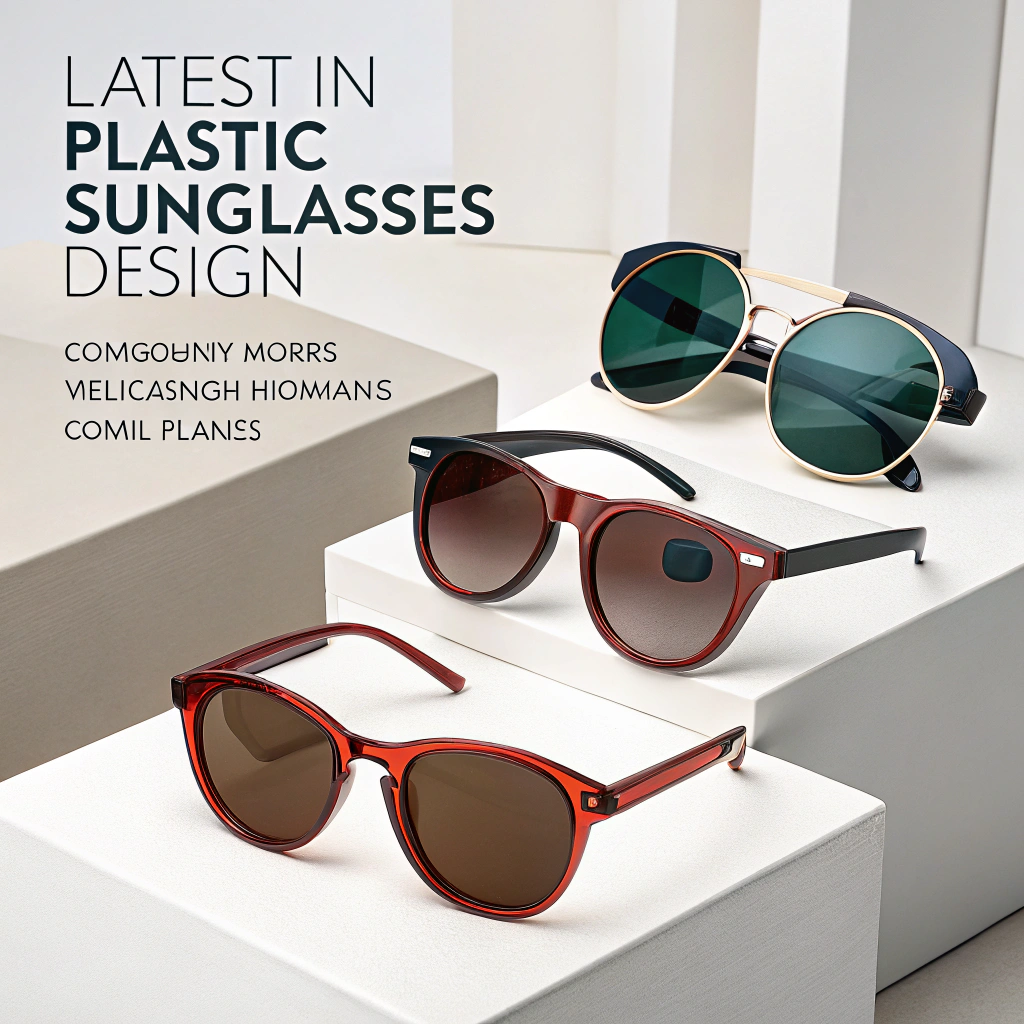
Key Design Trends
1. Ergonomics and Comfort
- Lightweight materials for prolonged wearability.
- Adjustable nose pads and flexible temples for a secure fit.
2. Fashion and Style Evolution
- Bold, oversized frames and vibrant color palettes.
- Minimalist and retro designs making a comeback.
3. Customization and Personalization
- 3D printing enables on-demand customization.
- Unique engraving and limited-edition colorways enhance exclusivity.
Consumer preferences are shifting towards function-driven, stylish, and personalized eyewear options.
How Are Plastic Sunglasses Used in Different Industries?
Beyond fashion, sunglasses serve functional purposes across various industries.
Sports, medical applications, and smart eyewear integration are expanding the market.

Applications of Plastic Sunglasses
| Industry | Application |
|---|---|
| Sports | Polarized lenses for glare reduction in outdoor activities. |
| Medical | Prescription sunglasses and blue light-blocking lenses. |
| Smart Glasses | Integrated Bluetooth, AR, and health-tracking features. |
Eyewear technology continues to evolve, enhancing both functionality and user experience.
How Is Sustainability Changing the Eyewear Industry?
Environmental responsibility is shaping eyewear manufacturing and consumer choices.
Brands are investing in biodegradable materials, recycled plastics, and energy-efficient production methods.
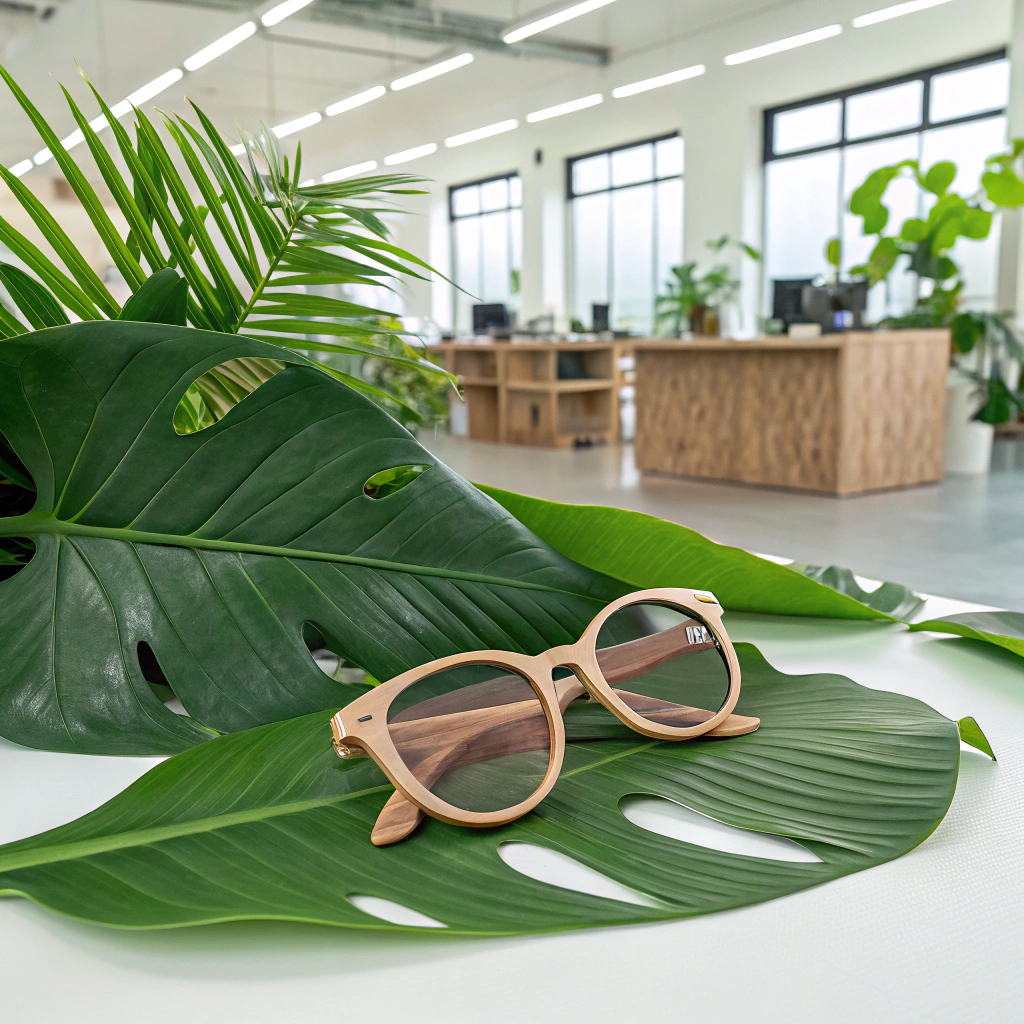
Sustainable Initiatives in Eyewear
1. Eco-Friendly Materials
- Biodegradable acetate and ocean-recycled plastics.
- Reduced reliance on petroleum-based polymers.
2. Energy-Efficient Manufacturing
- Lower carbon emissions through green production methods.
- Water-saving techniques in frame finishing processes.
3. Ethical Sourcing and Corporate Responsibility
- Compliance with fair labor and ethical supply chains.
- Recycling programs to reduce eyewear waste.
Sustainability is becoming a core focus in the future of plastic sunglasses manufacturing.
Conclusion
Plastic sunglasses are evolving with innovative materials, advanced manufacturing techniques, and sustainability initiatives. Eyewear brands must adapt to new trends in design, functionality, and environmental responsibility to stay competitive.

